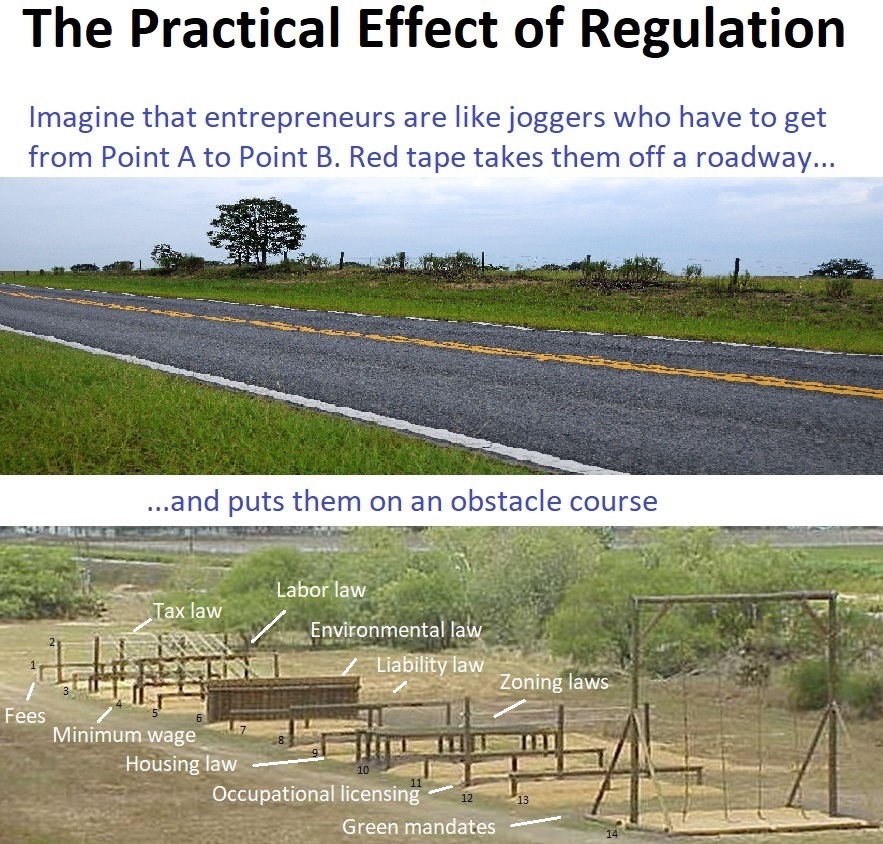Sensible regulation requires cost-benefit analysis. In other words, do the positive effects of a government intervention outweigh the negative effects?
 For instance, a nationwide, 5-miles-per-hour speed limit definitely would reduce traffic fatalities, but lawmakers fortunately don’t impose that kind of rule because it would be absurdly costly.
For instance, a nationwide, 5-miles-per-hour speed limit definitely would reduce traffic fatalities, but lawmakers fortunately don’t impose that kind of rule because it would be absurdly costly.
And since the scholarly research shows a clear link between health and wealth, it’s possible that some (supposedly) pro-safety regulations may wind up leading to a net loss of life.
Other regulations may not have that deadly effect, but they can still be bad news because they increase costs with no concomitant benefits.
For an example, let’s go back more than 20 years to look at an academic study on dentistry. The authors, , found that red tape was not good news for consumers.
Here are some excerpts.
We have analyzed the impact of stricter occupational licensing requirements on economic outcomes, dental prices, and earnings using dental records of the consumers of these services. …we sketched a model linking regulation to the flow of new dentists as well as to quality and prices. …Alternative multivariate statistical models were used to test the impact of more restrictive licensing provisions, first on dental outcomes and then on the prices of dental service prices and practitioner earnings. …we are able to provide some evidence on how tougher dental regulation reduces the flow of dentists to the states over time.
We also show that stricter regulation raises prices, but has no effect on untreated deterioration. …more stringent regulation does not appear to affect some indirect measures of service quality, such as lower malpractice premiums or fewer patient complaints. …Our multivariate estimates show that increased licensing restrictiveness did not improve dental health, but it did raise the prices of basic dental services. Further, using several tests for the robustness of our estimates, we found that the states with more restrictive standards provided no significantly greater benefits in terms of lower cost of untreated dental disease. Our estimates…show that more regulated states have somewhat higher dental prices. …Consequently, moving toward more restrictive policies that limit customer access to these services could reduce the welfare of consumers. …To the extent that states are considering a reduction in the pass rate on dental exams or making it more difficult for out of state practitioners to enter, our analysis suggests that there would be no gains to consumers in terms of overall dental health.
This flowchart from the study illustrates what the authors were trying to measure.
The bottom line is that we have yet another case study (for others, see here, here, here, here, here, here, here, here, here, and here) of red tape being bad news.
P.S. In recent decades, the U.S.A. has had two presidents (here and here) that pushed for less red tape.

No comments:
Post a Comment